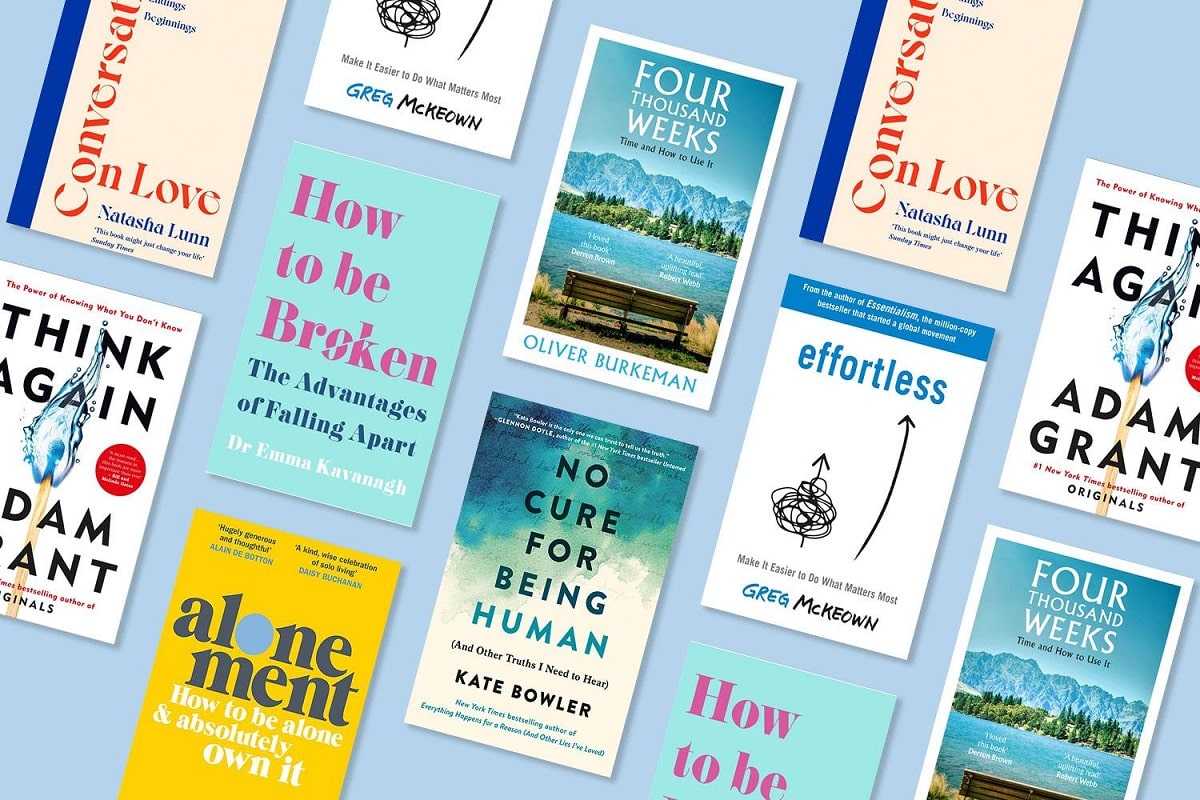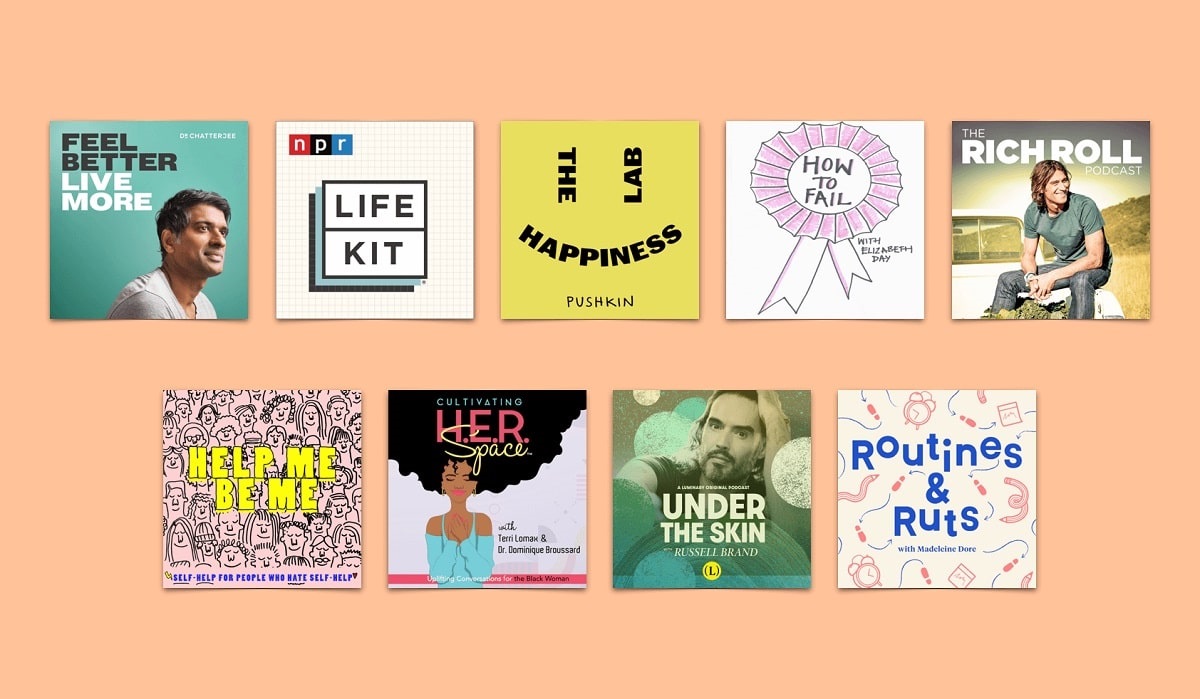1
HOME > Health & Fitness >
SELF-HELP BOOKS AND THERAPY CULTURE – HAVE WE OVERDOSED?
A SPOONFUL OF HEALTHY SCEPTICISM
Written by Samuel Walters in Health & Fitness on the 4th July 2022

“Look into my eyes… deep into my eyes. In a moment, when I click my fingers, you’re going to wake up and believe you’re a chicken. You’ll strut around the room flapping your arms, pecking for seeds and making occasional clucks. In three… two… one….”
This is my idea of hypnosis. It may well be your idea of it too. Is it stage magic? Is it a complete con? Or is it some truly deep and powerful phenomenon that lets us access the unconscious, as was believed by the early practitioners in the 1880s? I don’t know, but I know that I don’t like it. I’ve never trusted hypnosis any more than I’ve trusted psychoanalysis or indeed therapy culture in general, the latest manifestation of which is this massive fashion for self-help books, self-care podcasts and mental wellbeing apps. These things are the hypnotic treatments of today and we should be wary of them. They claim to promote health, but they’re also generating wealth. It’s an industry, and I think that much of the time the writers and practitioners take us all for a bunch of suckers.

As someone very much in the English tradition, I favour such unfashionable things as the stiff-upper lip, self-control and common sense. I don’t think we need an expert to tell us how to think carefully about the consequences of our actions. We can work that out for ourselves if we’ve half a brain. I don’t think we need a “life coach” to tell us that we shouldn’t be greedy and eat all the pies or else we’ll tubby up. And I certainly don’t think we need any sort of app-based guru to tell us that if we fritter away all our money on shiny new things it’s probably not going to bring us lasting contentment. I’m not saying that managing our behaviour is always easy or that there aren’t very painful reasons that we do things sometimes. But in general I don’t think it’s nearly as complicated as it’s so often made out to be by the self-help trend. Take Marie Kondo’s book “The Life-Changing Magic of Tidying” for example. Anyone who bought this should give themselves a sharp slap round the face. Does it really take a sweet little lady from Japan to tell us how to put our shirts on hangers, take our old bits and bobs to the charity shop and then get the hoover out? It’s pathetic. My grandparents’ generation were in The Blitz. If your home wasn’t bombed to smithereens you were grateful, and you made good use of what few possessions you had under wartime rationing to “make-do and mend” – darning socks and unpicking old jumpers. Are we all now so spoilt and helpless that we need professional instruction in order to de-clutter our homes and get a bit organised? I find it absolutely shameful that a book about tidying was a bestseller and had a TV series made off the back of its success.

And Kondo’s book is just the tip of the iceberg. The shelves are packed with paperbacks that tell you how to do things that anyone with an ounce of sense should know how to do already. If you’re carrying a few extra pounds and getting wheezy walking up the stairs then it’s perfectly obvious you should get off the sofa and just go for a stroll once in a while to keep fit. You don’t need Joe Wix to tell you that. The self-help blogs are even worse. There are thousands of the bloody things, all dressing up timeless wisdom to sound new, flashy and clever. All the advice consists of insights that we already know from a language and culture rich in proverbs and idioms. It’s perfectly true that we should “practise gratitude.” But we already knew that. It’s concisely and poignantly expressed in the simple phrase “There but for the grace of God go I.” It’s also true that “sleep hygiene” and “achieving the perfect work-life balance” are important, but we knew this already, too, from “Don’t burn the candle at both ends” and “All work and no play makes Jack a dull boy”. Yes, “treating yourself and others with consideration and respect” is great but we knew that one from the eloquent “Do as you would be done by.” I suppose these are all too short and sweet to turn a profit. You can’t make a two-hour long podcast, including several ad breaks, out of a succinct idiom. You’ve said it and the message has hit home all in two seconds. These are just a few examples, but you see my point – the self-help types are reinventing the wheel and we’re all paying them handsomely to do so. Are we really such a nation of fools?

In fairness, I do understand the appeal of it all. Religion used to be a far more prominent part of life for the majority of people in this country. Religion guides you, both on the everyday level and about the deep things. Without any kind of guidance, life can be an incredibly confusing experience and a terrifying one. Therapy culture, self-help books, blogs and podcasts all offer a secular equivalent of what religion used to provide. The therapists and life coaches of today do for many us what the priests, rabbis and imams did for us in the past. (Some of those proverbs I mentioned above have their roots in religion.) As someone who used to be religious and no longer is, believe me when I say that I get it. I understand very well why the self-help industry is booming. But I say that we can still look for secular guidance in an intelligent and discerning way. We don’t all need to dash off to become Scientologists and we don’t need to put every Tom, Dick and Harry with the gift of the gab on a pedestal and view them as prophets of the modern age. Refreshingly, however, a new self-help book has been brought to my attention that dispenses with all the twaddle and doesn’t patronise. “How to Be Your Own Therapist” by Owen O’Kane is just out and is by a man who is not only a former NHS Clinical Lead for Mental Health but who also grew up in Northern Ireland during The Troubles. In his book, you’ll find such sound advice as “The simplest way to think about how best to respond to your own emotional needs is to consider how you’d respond to a distressed child.” Or “Review your tolerance levels when life doesn’t deliver what you want or expect. Life doesn’t work the way we think it should. Life expects us to work with it. Hard to swallow but true.” This book is not just another self-help volume that fobs you off with annoying, gimmicky life hacks. It’s a book that helps to nudge us into using the intelligence and understanding that we already have about life and ourselves, in a more efficient way. This is what self-help should be.
Now, three… two… one… peck like a chicken!
Trending
2
3
4
5
6
7
8
9
10









